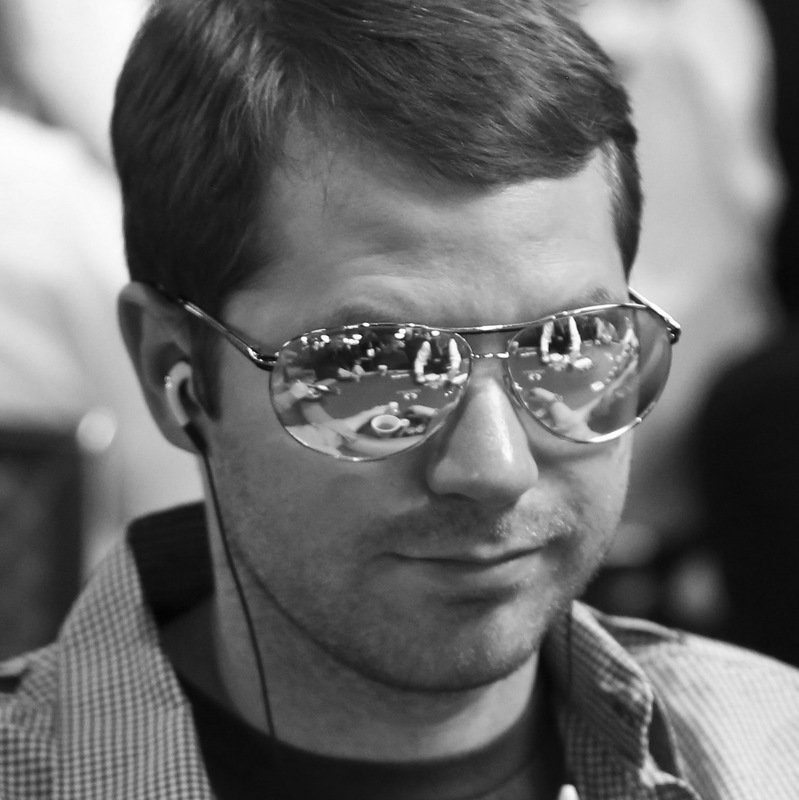






Finding A Tough Callby Jonathan Little | Published: May 22, 2019 |
|
|
Card Player Magazine, available in print and online, covers poker strategy, poker news, online and casino poker, and poker legislation. Sign up today for a digital subscription to access more than 800 magazine issues and get 26 new issues per year!
The following hand took place recently in the $5,000 buy in World Poker Tour Montreal event at Playground Poker Club. We were playing 400-800 with an 800 big blind ante.
A wild German player with 150,000 chips raised to 2,000 from first position. So far, he was playing straightforwardly, although I knew from my past experiences playing with him that he is capable of getting well out of line. I was in second position with 100,000 chips and decided to call with A 10
10 .
.
Against what may be a wider than normal opening range, calling makes sense. If my opponent was a tight player, folding would be the best play because then, I could easily be dominated and will be in a difficult spot if I flop top pair and face significant aggression.
I called, as did the hijack, the cutoff, the small blind, and the big blind. The flop came 10 9
9 9
9 . The blinds and the initial raiser checked to me.
. The blinds and the initial raiser checked to me.
Betting is mandatory both for value and protection because if I check, any king, queen, jack, eight or seven could easily give one of the other five players the best hand. Also, any small card could give someone a set. A reasonable 50 to 66 percent pot bet is nice in this situation because a smaller bet would give everyone excellent odds while a larger bet may force them to fold marginal hands I crush, like J-10 or 8-8, which would be a disaster. You want to make a bet that will force out the junky draws that will only invest more money if they improve to an effective nut hand while also keeping in the worse made hands. Don’t worry about trying to price out strong straight and flush draws, because if you bet huge, the worse made hands will fold, resulting in you being against a range containing mostly better made hands and premium draws.
I bet 7,000 into the 12,900 pot. Everyone folded back to the initial position raiser, who called. The turn was the 8 and my opponent bet 11,000 into the 26,900 pot.
and my opponent bet 11,000 into the 26,900 pot.
This lead is quite unexpected, given I could easily have a draw that improved to a straight or a full house, but seeing how my opponent had a wild image, I thought he could have an overpair, ten, nine or one of the random draws, such as K-J, K-Q, J-10, J-8 or maybe even draws to the low end of the straight. If my opponent made a larger bet, I would probably just fold, but due to the excellent odds, calling is acceptable.
If I had an even better read on my opponent (which certainly occurs when you play with the same players on a regular basis), I could probably pinpoint his range with a high degree of accuracy. When someone takes an odd line such as this, they almost certainly have squarely the nuts, a marginal made hand or a draw. If you know exactly which type of hand your opponent leads in this situation, you can play perfectly and win a lot of money.
The river was the 7 . My opponent quickly bet 16,000 into the 48,900 pot.
. My opponent quickly bet 16,000 into the 48,900 pot.
At this point, the only hands I beat are the draws that had a seven, such as A-7 and 10-7, as well as K-Q and some sporadic bluffs from a made hand such as Q-10 or A-8. If that was all there was to this hand, I should probably fold. However, I am not sure my opponent would bet for value with anything besides a premium hand on this river, meaning his betting range should be hands that can at least beat a straight or total air, as I clearly have some sort of made hand to call the turn bet. If my opponent had a marginal hand such as K-K, I doubt he would bet the river. That said, given the excellent pot odds and my opponent’s tendencies, I should call. If my opponent made a larger bet on the river, around 38,000 or so, I would be forced to fold.
After a few minutes of thought I decided to call. My opponent acted angry and turned up K-Q, giving me a nice pot.
It is important to always think about what your opponent’s range is and how he would play it on each street. If you find yourself zoning out at the table, you will miss quite a bit of useful information that will allow you to pinpoint your opponent’s range with a high degree of certainty at some point in the future. If you can play smart and figure out exactly what your opponent has, you can avoid a guessing game for a lot of money. ♠

Jonathan Little
Features
The Inside Straight
Strategies & Analysis